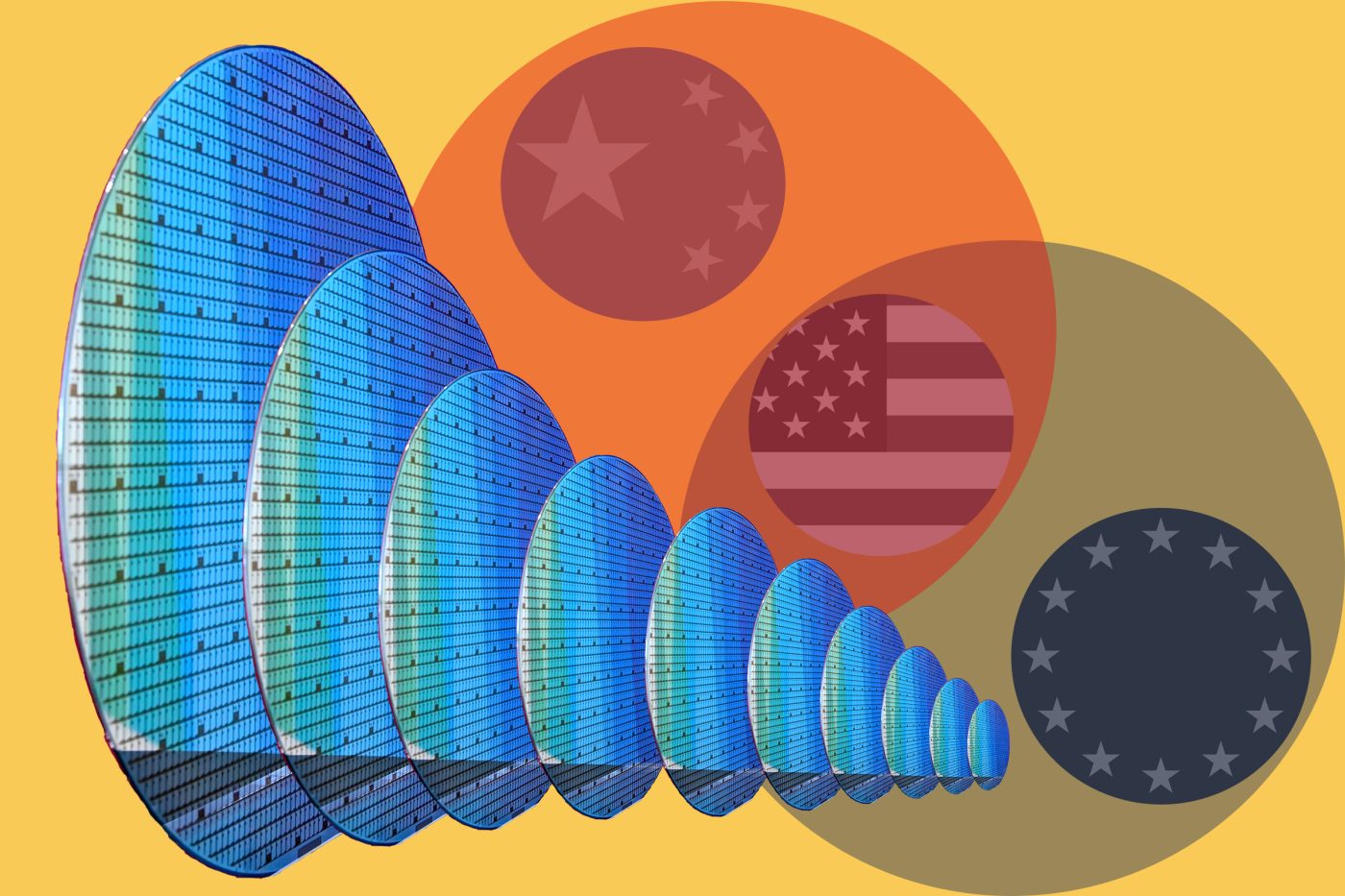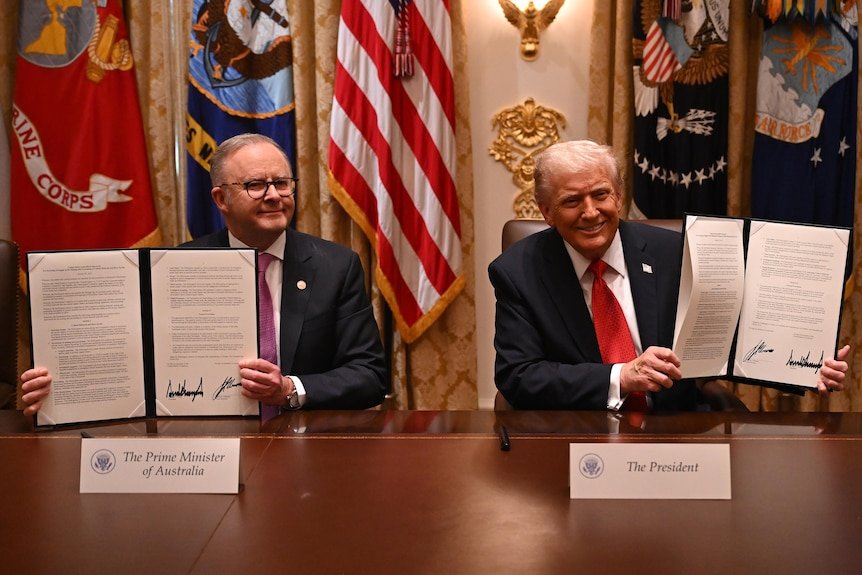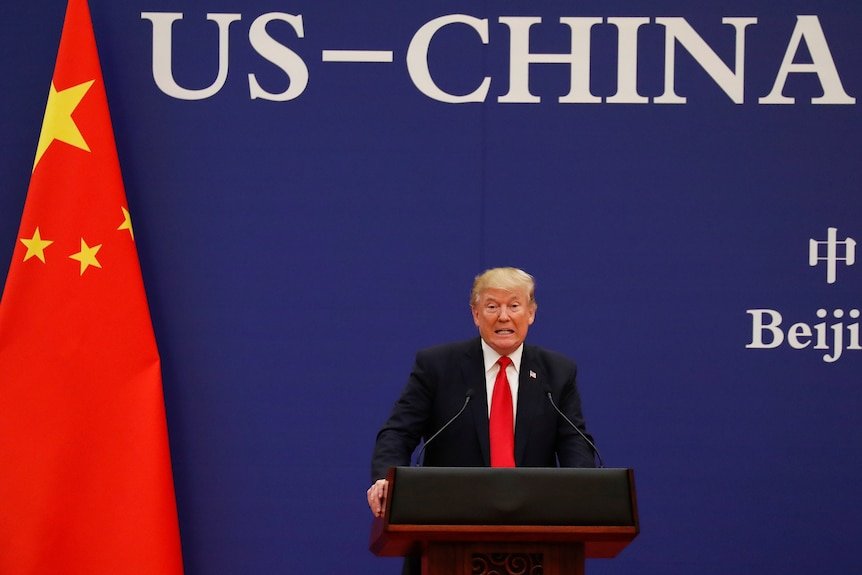The previous Biden administration prioritized strategic industrial planning, export controls, and regulation. The current administration embraces deregulation, private investment, and transactional deal-making.
It’s a new cocktail.
The current White House prioritizes market-driven growth and deregulation to drive US tech leadership. Biden-era AI risk frameworks have been set aside, cast as “innovation blockers,” and replaced with industry-led guidelines. Moving forward, the key to success will be coordination with allies, who risk being antagonized, but who are essential to counter Chinese control of raw materials and key parts of the semiconductor supply chain.
Export controls are being rolled back. President Joseph Biden coordinated with Dutch and Japanese allies to curtail chip technology sales to China. The Administration initially loosened those restrictions and experimented with a novel mechanism: taking 15% of NVIDIA and AMD’s AI chip sales to China.
Conflicts are emerging. Despite the decision to allow sales of advanced semiconductors, China has curbed exports of critical minerals, over which it enjoys a near monopoly, a move analysts say is designed to give it leverage in trade talks with Washington.
While US chipmakers can now export advanced artificial intelligence chips, Beijing doesn’t want many of them anymore. China’s Cyberspace Administration instructed its major tech players to halt purchases of NVIDIA’s AI chips, alleging that they contain hardware backdoors capable of removing shutdown. NVIDIA, in turn, has reportedly suspended its production of its H20 chips designed for China — effectively closing off a $50 billion market for AI chips that anchored its global growth.
Get the Latest
Sign up to receive regular Bandwidth emails and stay informed about CEPA’s work.
Against the rising tensions, industrial policy has taken a new form. The previous administration subsidized domestic chip manufacturing; the current White House has turned off the subsidy spigot and instead monetizes exports rather than restricts them. Beijing’s drive for tech self-sufficiency accelerates, with firms such as Huawei promoting their Ascend 910B processors as credible rivals to American hardware.
A new wave of overseas investment is pouring into US tech, including from Arabian Gulf partners, into semiconductors, AI, and cloud infrastructure. These investments could bolster US competitiveness and prompt reflection on how foreign investment screening and long-term national security goals align.
US technology policy continues to evolve. Earlier industrial initiatives, such as the Inflation Reduction Act’s clean-tech initiatives and the Defense Production Act’s support for promoting domestic refining of critical minerals, are being recalibrated, as the White House focuses on efficiency and competitiveness rather than broad subsidies.
At the same time, federal investment in technology tied to national security remains robust. The One Big Beautiful Bill Act allocated $3.2 billion into emerging technologies and another $2.7 billion into border-security systems. The current administration has also expanded partnerships with private firms, such as tapping Palantir to help integrate, compile, and share data across federal agencies.
These public-private partnerships underline how Washington increasingly looks to the private sector to deliver innovation in the service of national objectives. Earlier this year, the White House and Apple’s Tim Cook unveiled a $600 billion plan to shift more of the tech giant’s supply chain and manufacturing to America, promising 20,000 jobs and a boost for domestic suppliers.
For US policymakers, managing competition with China will require careful diplomacy and consistent messaging.
Transatlantic cooperation remains challenging. Washington and Brussels continue to negotiate data flows, semiconductor subsidies, and artificial intelligence governance. Differences persist, particularly around European regulations such as the Digital Services and Digital Markets Acts, with Washington warning that they discriminate against US companies. Yet, the US Department of Justice continues to pursue long-running antitrust cases involving many of the same major technology platforms.
Success will require coordination with allies. During a visit to Washington by Australian Prime Minister Anthony Albanese, the US and Australia signed a deal intended to boost supplies of rare earths and other critical minerals by allocating $1 billion to projects in the two countries over the next six months.
Europe and Japan will also be key. Dutch lithography leader ASML, supported by a vast web of European optical companies, dominates a key part of semiconductor production. Dutch company Nexperia produces chips that are essential for making cars — and now, it’s at the center of a trade dispute between the US and China that could shutter global auto plants and send already record-level car prices even higher.
Japan dominates the chemicals supply chain essential to semiconductor production. It is also innovating by building cloud-based Open RAN telephone networks that contain no Chinese parts. President Trump visits Tokyo later this month and will hear that the only way to counter China is to work with Japanese companies.
In this context, the United States’ emerging technology posture reflects a blend: part market dynamism, part strategic direction. To allies and competitors alike, that mix can appear ambiguous and even confrontational, but it can offer flexibility and opportunities for cooperation. China’s challenge requires pragmatic decisions. It means working with allies.
Elly Rostoum is a Senior Resident Fellow with the Center for European Policy Analysis (CEPA).
Bandwidth is CEPA’s online journal dedicated to advancing transatlantic cooperation on tech policy. All opinions expressed on Bandwidth are those of the author alone and may not represent those of the institutions they represent or the Center for European Policy Analysis. CEPA maintains a strict intellectual independence policy across all its projects and publications.
Read More From Bandwidth
CEPA’s online journal dedicated to advancing transatlantic cooperation on tech policy.







